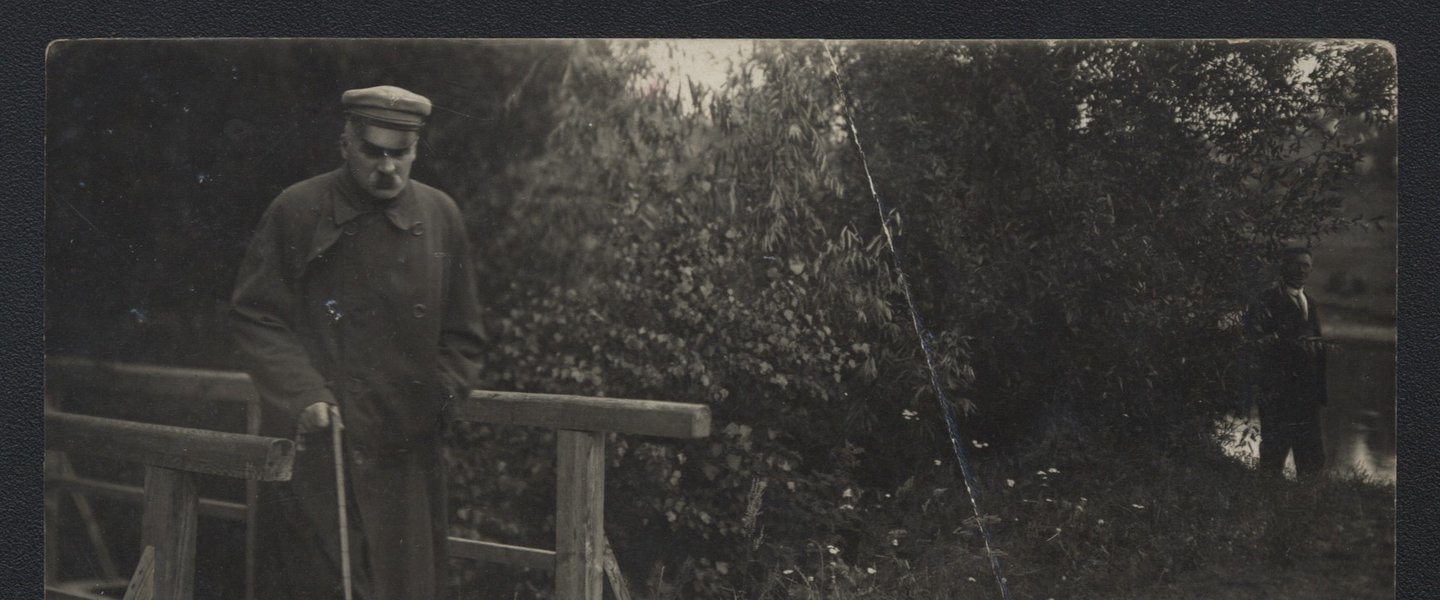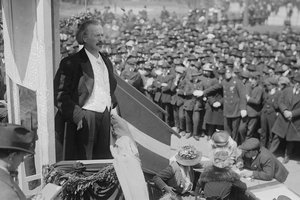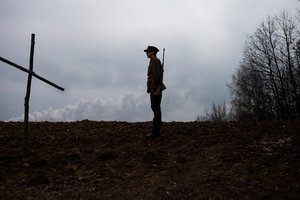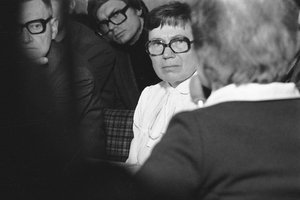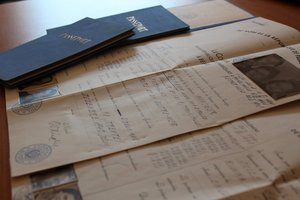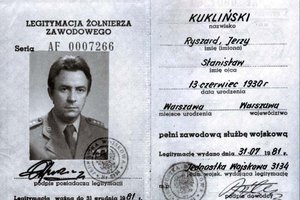Józef Piłsudski – a life dedicated to an independent Poland
Throughout his life Józef Piłsudski fought for, and in defence of, Poland. As the most eminent representative of the “rebellious” generation, he first was in the socialist movement and then was in the ranks of the Riflemen and legionaries, where he strived to put Poland back on the map.
Later, as head of state and Commander in Chief he helped create solid foundations of the state edifice and forge its boundaries. Finally, he played a part in ensuring Poland’s ability to survive in a hostile external environment.
In the Polish socialist movement, he was given the role of leader. It happened naturally as a result of his personal qualities, perseverance and organizational skills. He also formulated a dictum used to this day that the socialist in the country must strive for its independence. It was none other than Pilsudski who, during the revolutionary turmoil in Russia, sought to transform these events into another national uprising, and at the head of the Combat Organization, he fought the Tsarist system and its representatives. These struggles, ending with the Battle of Bezdany, are an illustrative testimony of the fact that it was not only possible to combine social justice with the idea of an independent Poland, it was necessary to do so.
In turn, long-term activities, taking place at the time of the global conflict, were related to the time of paramilitary preparations carried out on Galician soil. Although the first practical attempt to search for a real, not theoretical ally took place in 1904, during a trip to Japan, it was only after 1908, that increasingly favourable international realities could be fully taken advantage of. Piłsudski became the leader not of the party, but of the political camp.
The commander prompted activity especially among the patriotic youth, who in the Riflemen’s Movement saw a previously unattainable chance of setting off, weapon in hand, to engage in an open fight for Poland. On the basis of sober public analysis, he himself publicly proclaimed that as a result of the defeat of all three partitioning powers, the return of an independent Polish state to the map of Europe would be only a matter of time.
War and the Poland issue
After the outbreak of war, the Riflemen avant-garde led by Pilsudski presented the public with a fundamental question as to whether it was ready for a new national uprising. This extremely risky "war agitation" brought along a spectacular fiasco, to the extent that the Brigadier proclaimed in the second half of August 1915 that he would do the "bidding of the Polish cause". Until the fall of 1916, the strategy operated by Piłsudski was conducted under the slogan of "government and army."
The Polish army consisting of thousands of men could turn out to be an important argument in this spectre, especially since Piłsudski had become the only politician capable of carrying out this plan. The breakthrough confirming Piłsudski's intuitions proved to be the double act of November 5, 1916, proclaiming the establishment of the Kingdom of Poland. This act significantly internationalized the Polish issue, elevating the situation to a new level that would have been difficult to imagine even a year earlier. And although the centre of action soon moved to the west, where the initiative passed into the hands of Roman Dmowski, while the Brigadier himself found himself isolated in Magdeburg, it is hard not to note that it was he who gave the necessary dynamism to the cause.
Government and borders
From November 1918, when he led the process of establishing the Polish state, Piłsudski faced many other challenges. It is up to the head of state to take responsibility for the choice of priorities, both in internal affairs and primarily in relation to the delimitation of borders. While the Western and Southern divisions were dependent on the Entente position and the shape of peace with Germany, in the East it was the strong Polish army that was decisive with regard to the Civil War in Russia.
The shape of politics in this direction pursued at the time by Piłsudski is described as being federational. The commander was not however a doctrinaire. He used the federative tool primarily to secure the most advantageous borderline for the Republic. The Bolsheviks were the greatest threat, and it was with them that the fiercest struggles were fought. The attempt to beat Bolshevik Russia, undertaken together with the Ukrainian ally in the spring of 1920, brought first spectacular success in the form of the occupation of Kiev, and then, as a result of Tuchaczewski's counter-offensive, the deadly threat to the still fraught Polish statehood.
The decisive strike came with Pilsudski's Polish counter-offensive on the Wieprza, complemented by another defeat of hostile forces in the Battle of the Niemen River. Although the peace concluded in Riga in March 1921 was not entirely satisfactory to the commander, there is no doubt that the borders of the Second Republic, carved out between 1919 and 1921, should be credited as one of his greatest achievements.
He was a statesman who from 1926 resorted to dictatorial means, but he was not like other European dictators. Because he consolidated the ruling camp, rather than create divisions. And he did not seek power for its own sake and even his most ardent opponents saw the natural modesty of his daily existence. Pilsudski grew beyond the era in which he lived. He fought for a free, independent Poland, and when this dream came true, he managed to forge the optimal post-war realms and build modern constitutional foundations.
 Source: Nasz Dziennik
Source: Nasz Dziennik
04.12.2017
